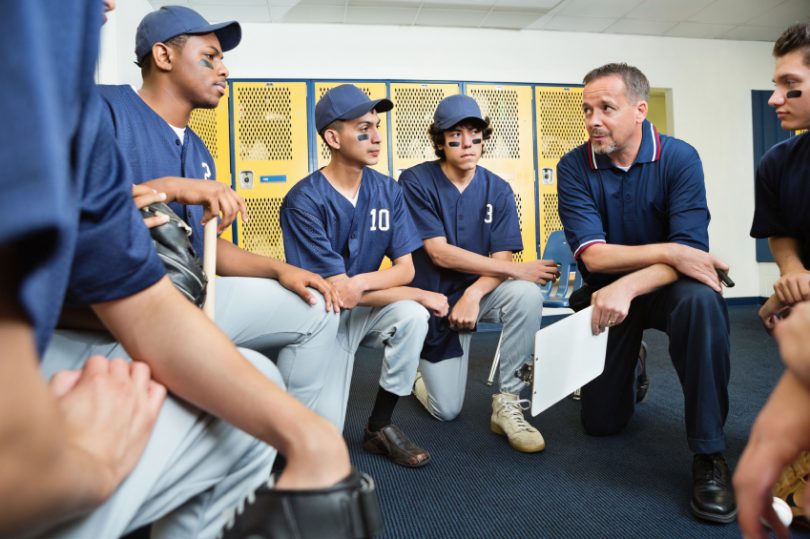By Andrew Bennett
I’ve played or coached baseball at the high school, college, and professional levels, and the more time I spend around the game, the more convinced I become that there are few skills more important for a baseball player than the ability to determine when not to listen. Before elaborating, I want to clarify that I’m certainly not discouraging players from being coachable. Reflecting on my own playing career, I realize now (as I imagine many other coaches do) just how “uncoachable” I was. I was a bit of a contradiction in that sense, because my work ethic was tremendous. I was inspired by coaches and teachers who talked about dedication and sacrifice; those teachings I eagerly soaked up and applied daily. But when it came time to take advice from those same people about pretty much anything else, from what pitches to hit to which college to attend, not much was going to stop me from following my own plan.
So what exactly do I mean by “knowing when not to listen?” My goal is to approach this topic through a relatively broad lens. The skill I’m talking about has to do with much more than merely listening or not listening to a particular coach or mentor about how to throw harder or steal more bases. It’s about the weight we give others’ opinions, opinions that quite ironically may be entirely different than what we imagine. I’m not sure exactly what it is about baseball, but those who have spent enough time around the game know how exceptionally well it mirrors the challenges we face in life; excessive worry about what others think is certainly no exception.
The classic tale, of course, is of the struggling hitter who futilely attempts to please many different people, each of whom proposes a different slump-busting remedy, and only suffers greater frustration as a result. It’s a common predicament these days for a young player to be forced to navigate the complexities of the “triangle of advice,” appearing in many different forms but typically comprised of a parent, a private instructor, and a coach. We often advise a young player to “pick and choose the things that work for you” without considering the strain such an approach may place on his relationships with those whose suggestions he does not pick or choose.
Certainly parents bear some of the responsibility for not inundating players with instruction, and for making at least some attempt to ensure that a player faces a minimal amount of starkly contradictory coaching. But such efforts can only go so far. The best thing a parent can do is have a conversation, early on in a player’s career, about how to receive all coaching, even suggestions the player may ultimately choose not to implement. It’s about interacting with coaches respectfully, entertaining their ideas with an open mind, and then thinking critically about what will or will not work best: the Aristotelian approach to becoming a better baseball player. Sound like a lot for a youth player? All the more reason to start the discussion early! By the time the player gets to college, he’ll be a coach’s dream: coachable enough to make the proper adjustments but autonomous enough to self-correct during the 95% of his life when a coach is not around. And if he’s lucky enough to reach professional baseball, he won’t drive himself crazy (as I did at that level) trying to follow enough conflicting advice to make a player’s head spin. (The best way for a player to fortify himself against over-coaching, of course, is to hit .500 at every level and consequently be left alone. To my knowledge, no one has figured that one out yet. Perhaps that will be the inspiration for a future blog post.)
When I originally decided to write about this topic, it was with the intent to examine how high school players make their final college decisions and how often those decisions are based on the wrong factors and influences, primarily others’ opinions of what looks or sounds impressive. Does a parent’s opinion about college matter? Certainly. Does an influential mentor’s? Of course. But when a college decision becomes about what’s perceived as impressive rather than what feels right or what actually provides value to the student-athlete, the likelihood of fulfilling the goal of a great four-year experience plummets. Cliché though such advice may be, a painfully large number of high school baseball players still fall into the “looks and labels” trap. And as I alluded to earlier, most of us drastically overestimate how impressive (or unimpressive) an accomplishment appears to others. Want your player to do something impressive? Forget rankings and appearances for a moment and let him pick the school that will give him the best opportunity to combine success, challenge, and opportunity, both on and off the field, at a level of financial commitment that makes sense. Whether in the batter’s box or in the final stages of selecting a school, exciting and rewarding possibilities abound in this game if your player knows when, and when not, to listen.







